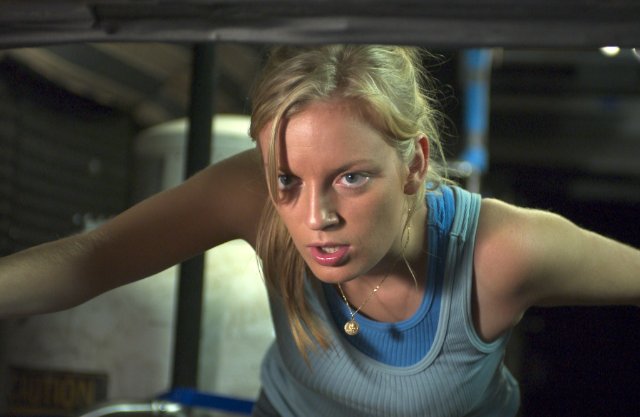
For any artist with an audience, criticism and scrutiny are inevitable parts of the creative process. It’s a joy for any director when a movie is released to critical and popular acclaim, especially if it happens to be their first film. As with other professions, most directors will go on to refine their technique as they create more films, so it’s quite rare for an initial effort to outshine everything that follows.
With that in mind, following is a list of directors whose best film was their first film. Please note that several of these directors are still active, and may very well have their best work ahead of them.
1. Neill Blomkamp, District 9 (2009)
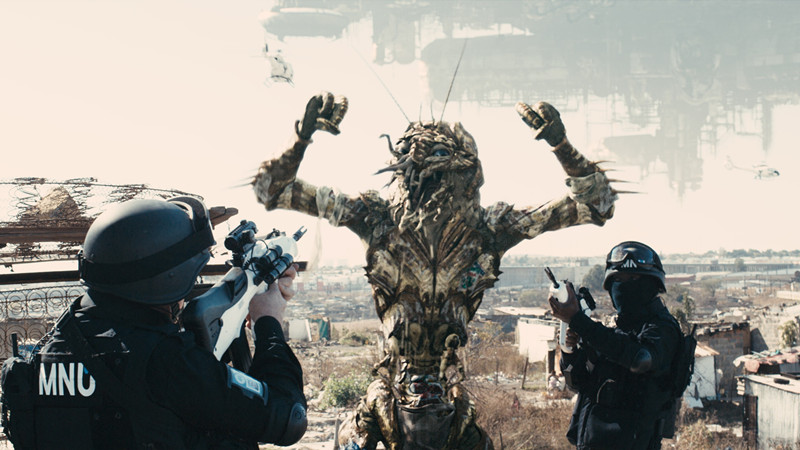
In 2009, a young Neill Blomkamp burst onto the scene with this smartly constructed, modern day, sci-fi allegory. Nominated for four Academy Awards (Best Picture, Adapted Screenplay, Visual Effects, Editing), the film received widespread acclaim from both critics and audiences, with most citing its intelligent script as a highlight.
Although District 9 primarily explores themes of xenophobia and segregation – in a not-so-subtle allusion to the history of apartheid in Blomkamp’s home country of South Africa – some have criticized the one-dimensional portrayal of its characters, as well as its unfortunate white saviour narrative. Since making this film, Blomkamp has gone on to helm two others: Elysium, and Chappie – both saw fair box office returns but mostly failed to register with audiences and critics.
2. Larry Clark, Kids (1995)
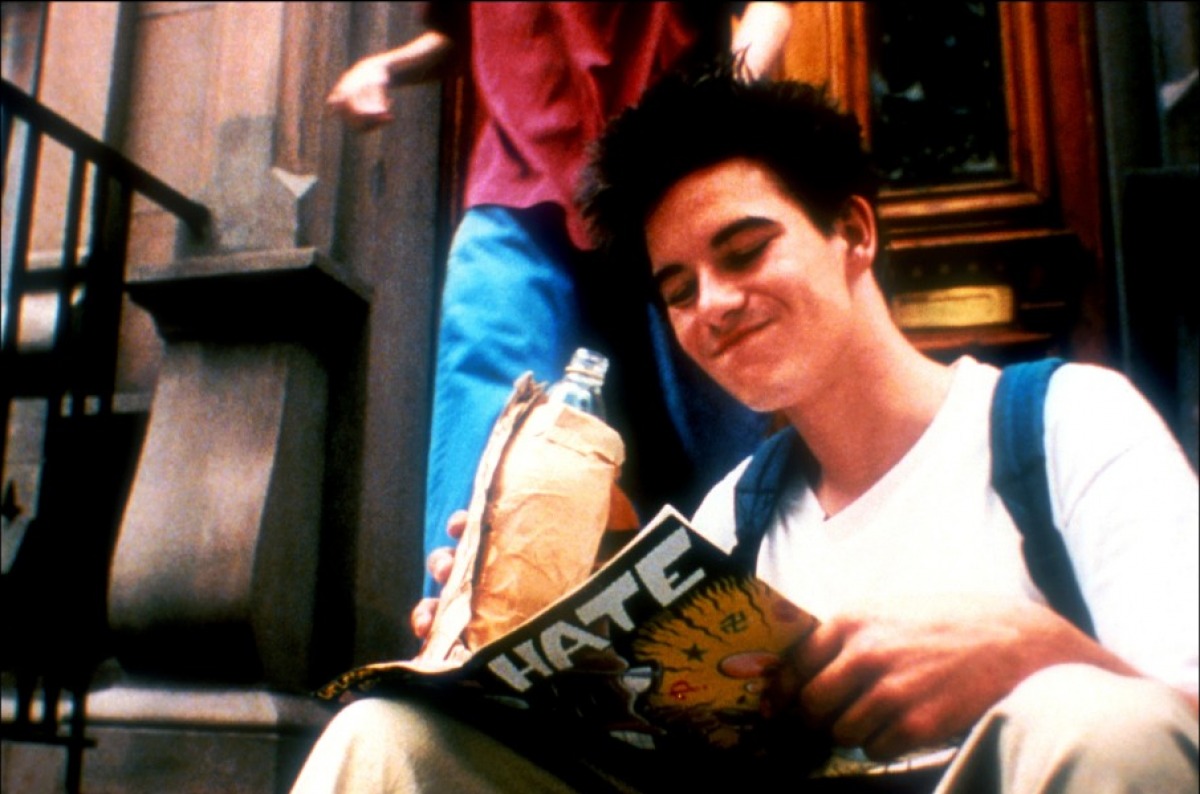
Larry Clark’s Kids comes off much like an urban Lord of the Flies with sex, drugs, and skateboarding thrown into the mix. Set at the height of the AIDS epidemic, and revolving around a group of hedonistic teens in New York City, Kids still stands as a divisive, shocking piece of cinema.
Written by a young Harmony Korine two years prior to its release (19 at the time), Kids is the kind of film that you can’t look away from. Clark, notorious for walking the line between frank representation and lurid exploitation, mostly leans toward the former here.
The camera in Kids doesn’t shy away from the depiction of explicit sex and drug use among its young characters, and the director stated his intention as being no less ambitious than “making the Great American Teenage Movie, like the Great American Novel”.
Clark went on to create such films as Bully, Ken Park, and Marfa Girl. Although Kids divides audiences and critics to this day, none of his films have had anywhere near the cultural and social impact of his first feature.
3. Orson Welles, Citizen Kane (1941)
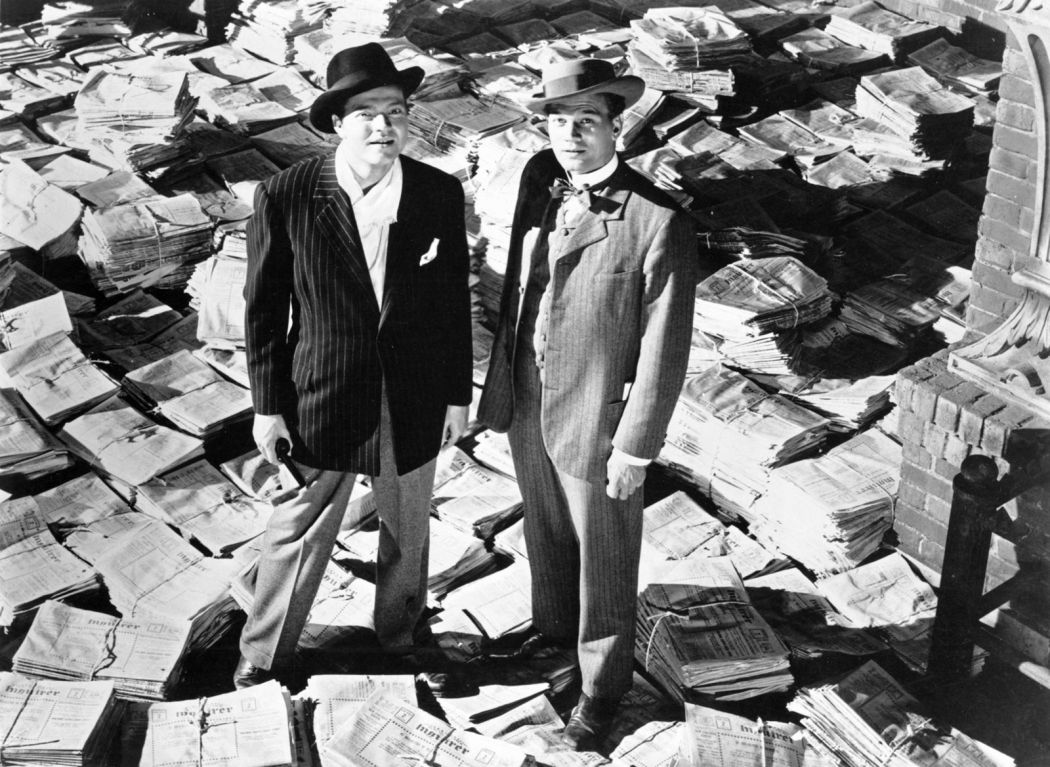
Citizen Kane on yet another movie list? Yeah, there’s no way around it. How could Welles have topped what may very well be the most innovative and revered film in the history of cinema? It was all downhill from here.
Check out Touch of Evil, and The Magnificent Ambersons for “lesser Welles”.
4. Satyajit Ray, Pather Panchali (1955)
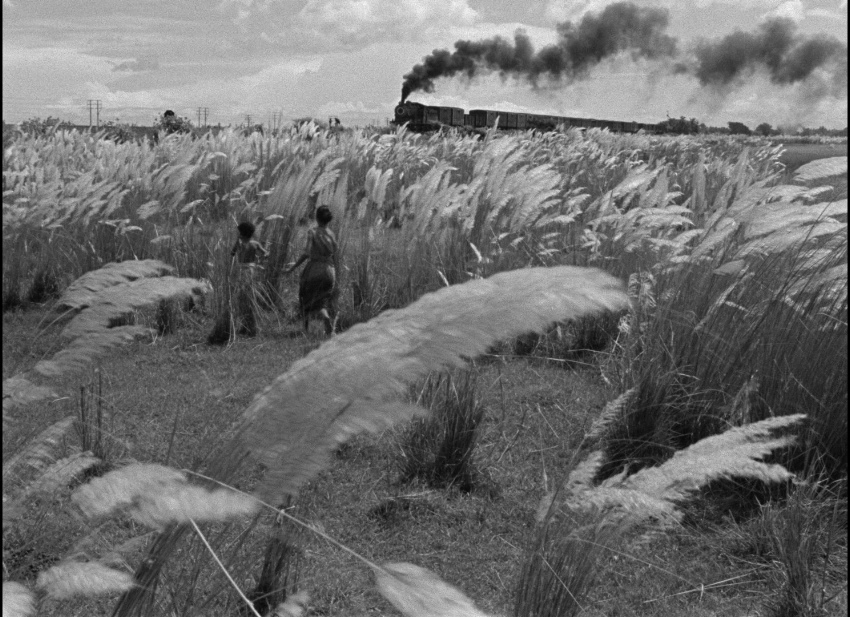
There’s no arguing the historical impact of Satyajit Ray’s Pather Panchali. The great Bengali director made twenty-nine feature films in his career – many of them considered classics – but it was his debut in 1955 that served notice to western audiences that a young, dynamic, and fresh voice had hit the scene.
In what was to be the first film in his Apu trilogy, Ray’s Pather Panchali centers on young Apu and his older sister Durga, as they go about their everyday lives in a rural Bengali village. The story is adapted from Bibhutibhushan Bandopadhyay’s classic bildungsroman novel of the same name, and provided a template for many great coming of age films to follow. Kurosawa best encapsulated the film’s sentiments by stating that it was “overwhelming in its ability to stir up deep passions”.
Ray’s catalog is full of rich works that would be considered essential viewing by any cinephile. However, nothing he made after 1955 would stand up to the sublime neo realism of Pather Panchali.
5. Charles Laughton, The Night of the Hunter (1955)
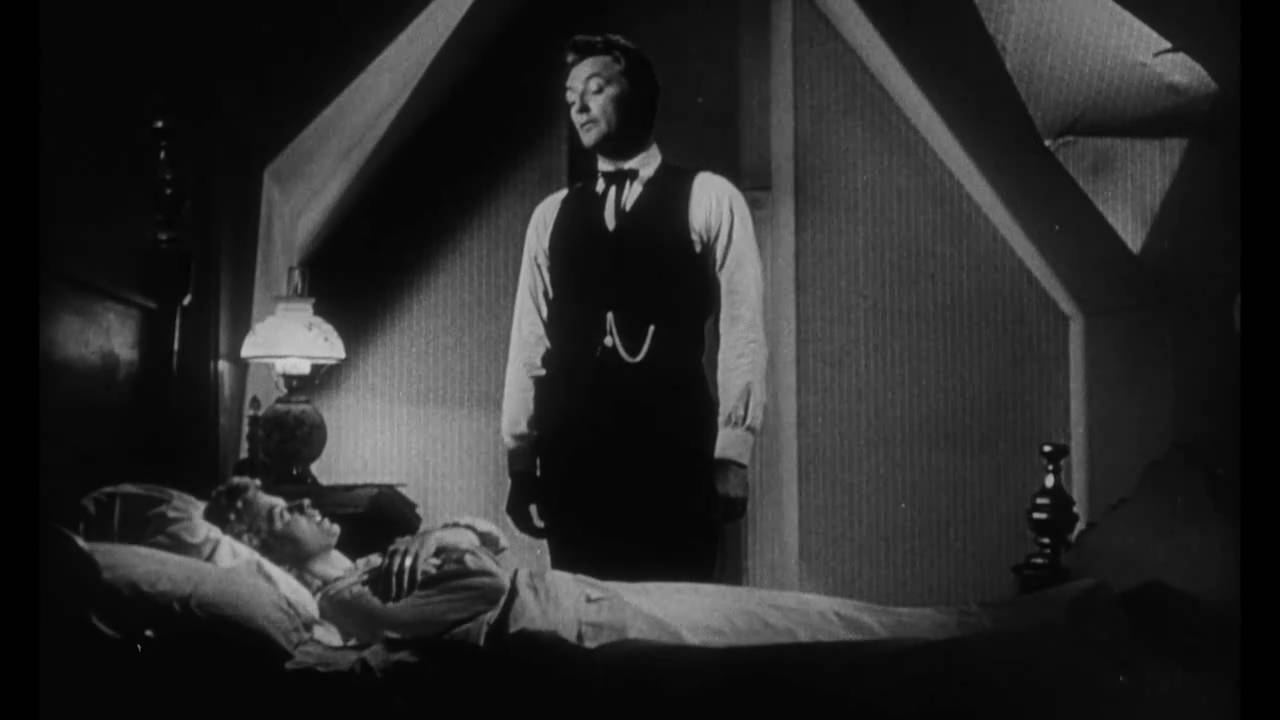
What if your best film is your only film? Putting Charles Laughton in that category is something of a cheat, as he does have one other (uncredited) attribution as a director: The Man on the Eiffel Tower, 1950. In any case, that film doesn’t hold a candle to Night of the Hunter, and had Laughton directed fifty more films, he would have been hard pressed to improve upon his magnum opus.
The film has a surreal, almost dream like quality, with Laughton and cinematographer Stanley Cortez revealing an obvious admiration for the German expressionists. Shadows dance across surfaces like entities unto themselves and perspectives are often distorted, creating a strange, terrifying landscape that reflects the wicked nature of Robert Mitchum’s Reverend Powell.
Night of the Hunter is such a singular, visionary work, whose disparate elements come together to form a kind of beautiful waking nightmare. It’s truly unfortunate that Laughton didn’t see fit to try his hand at directing more often.
6. Ron Underwood, Tremors (1990)
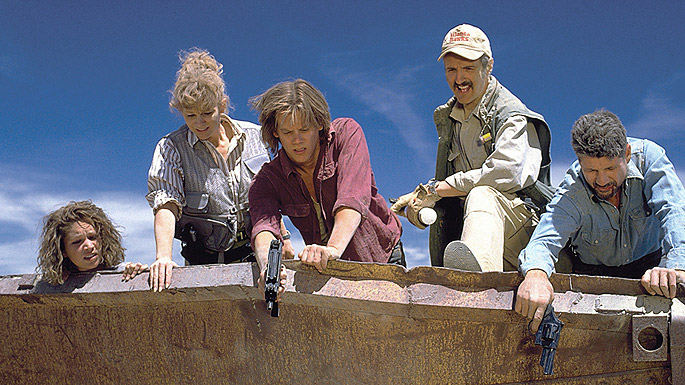
Director Ron Underwood had his coming out party in 1990 with the wonderfully entertaining Tremors. Although the film put actor Kevin Bacon back on everyone’s radar, at the time the he viewed it as a career low, stating, “I broke down and fell to the sidewalk, screaming, ‘I can’t believe I’m doing a movie about underground worms!’”
Despite Mr. Bacon’s reservations, the film was well received by critics. However, it didn’t really hit its stride with audiences until being released on home video, becoming a massive success and spawning four direct to video sequels.
Outside of Tremors, Underwood’s catalog has been mostly underwhelming, with his follow-up effort (City Slickers) being the best of the bunch.
7. Todd Field, In the Bedroom (2001)
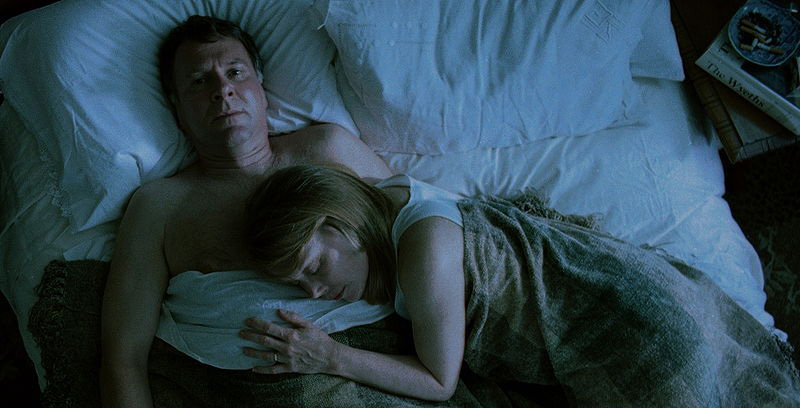
Todd Field needs to make more films. His debut is a poignant study in tone and quiet desperation, with Tom Wilkinson and Academy Award winner Sissy Spacek turning in brilliant performances as parents struggling to cope with a terrible tragedy. Every scene is note perfect in this early 21st century masterwork, and the supporting cast includes another Oscar winner in Marisa Tomei.
Displaying composure uncommon for a first time director, Field confidently allows his story to play out without morally judging his characters for their behavior. Rather, he allows his viewers to come to their own conclusions, while exploring themes of love, loss, and vengeance.
Field has been anything but prolific, having completed only two films in the past seventeen years. His second feature, Little Children, is a worthy follow-up effort most notable for breathing life into the career of Jacky Earl Haley.